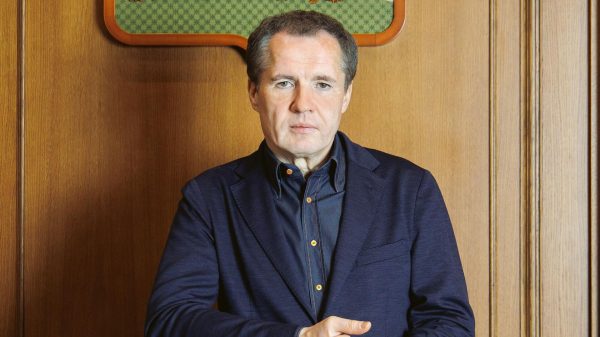 Disney CEO Bob Iger in 2017 Photo: Qilai Shen/Bloomberg
Disney CEO Bob Iger in 2017 Photo: Qilai Shen/Bloomberg
Disney CEO Bob Iger's victory over activist investor Nelson Peltz in the battle for the hearts and minds of Disney shareholders is being seen by most headline writers as a triumph — Iger defeating Peltz by a wide margin, according to the general consensus. But there's another way to look at it: If 31 percent of your shareholders support a candidate who has no real strategic vision other than wanting «a guy who has no media experience» to get on the board, something is clearly wrong.
The spat marks Peltz's second attempt to undermine Disney's board of directors, the first of which failed in 2023 after Iger laid out a plan to cut costs by more than $5 billion through layoffs, streamlining and dismantling the Disney restructuring carried out by Iger's interim successor Bob Chapek. The second effort became personal and political after Iger teamed up with ousted Marvel boss and major Disney shareholder Ike Perlmutter.
Peltz's recent FT interview, in which he bemoaned Disney's awakening, became his battleground: Iger had overseen the politicization of Disney and showed no signs of leaving. “People go see a movie or a show to be entertained,” he said, referring to “Marvels” and “Black Panther.” “They don't come to get the message. Why do I want a Marvel that's all women? Not that I have anything against women, but why should I do this? Why can't I have miracles that combine both? Why do I need an all-black cast?
His approach alarmed hedge fund Blackwells, which launched its own bid for board seats on the left, nominating Tribeca Film Festival co-founder Craig Hatkoff; former major studio executive Jessica Schell; and Leah Solivan, former CEO of technology company TaskRabbit. Peltz's Trian, Disney and Blackwells spent more than $70 million to win shareholder votes.
 Activist investor Nelson Peltz, whose bid for a seat on the Disney board failed. Photo: Karim Elgazzar/AP
Activist investor Nelson Peltz, whose bid for a seat on the Disney board failed. Photo: Karim Elgazzar/AP
“The scale of the costs involved is staggering,” says Gareth Sutcliffe, an analyst at Enders Analysis. «One can only conclude that this was a deeply antagonistic battle between principles.»
In this fight, all parties discussed the business case for corporate structure, costs, and streaming strategy. Peltz's extensive slideshow for investors focused on past events, including the 2019 acquisition of 21st Century Fox, which saw Disney's long-term debt increase virtually overnight to $38 billion from $17 billion, and Chapek's failed tenure. was named Iger's successor. in 2020 and showed the door in 2022.
Peltz's aspirations were vague: to «accelerate media profitability», «clarify strategic focus», «reimagine [his] creative engine», «right size» his «legacy media business cost structure» and achieve «Netflix-like profits in 15 -20 times.” percent by 2027.» While analysts agreed that Peltz's challenge dealt a needed blow to Disney's corporate identity — «Peltz has forced Disney to really think about where they are going,» one said — most believe his strategy is not the solution needed Disney.
 Disney's «Wonders» failed. Photo: Laura Radford
Disney's «Wonders» failed. Photo: Laura Radford
«After reading Peltz's plan, I'm not sure his changes will benefit Disney—if anything, his focus on stock price could hurt the brand in the long run,» says industry blogger and former streamer strategist for The Entertainment. Strategic guy. “The truth is that Disney hasn't really changed strategy since their shares hit an all-time high in 2021, but subscriber estimates suggest the pivotal shift to streaming simply didn't pan out.
“As growth slowed, Wall Street quickly refocused on the demand for profits, and frankly, Disney/Hulu would never have become profitable that quickly. And streaming will not be as profitable as the old linear TV bundle. Add in Covid-19 and strikes, and frankly, Disney would always be in trouble.»
However, he goes on to add that «Disney hasn't had as successful a series as it did in the 2010s.» And this is the point that was missing from the diagnosis and proposed treatment of all three teams. The company has failed to achieve success over the past year, despite releasing films that were expected to be box office successes, including «Marvels» and «Indiana Jones and the Dial of Doom.» At this year's Oscars, Disney received just five gold statues — for the film «Wrong Things,» essentially a British pseudo-feminist take on Frankenstein, and the documentary short «The Last Repair Shop.»
 The underperforming Indiana Jones and the Dial of Doom lost Disney $134 million. Photo: Jonathan Olley
The underperforming Indiana Jones and the Dial of Doom lost Disney $134 million. Photo: Jonathan Olley
For a company that has eight of the 10 biggest box office hits of all time and half of its 54 films that have earned more than $1 billion, it was a year of tumbleweeds, made even more troubling because it was Walt Disney's centennial year. Studio. And for all the talk about restructuring streaming and considering theme parks, the truth is that the big screen remains Disney's storefront. Attractions are based on or inspired by films. A huge portion of Disney series are based on the Marvel or Star Wars universes. If it doesn't work, it needs to be fixed.
It's not really about being woke or anti-woke. The company leaned too heavily on its franchises and learned the wrong lessons from previous hits. The Marvel Cinematic Universe has been a unique and compelling storytelling adventure since its inception, from 2008's Iron Man to 2019's Avengers: Endgame and 23 separate but interconnected blockbuster films. covering the superhero soap opera known as the Infinity Saga.
Meanwhile, Star Wars' first foray into television, The Mandalorian, was an intriguing take on the spaghetti western, featuring a gunslinging version of Boba Fett, the beloved but underutilized bounty hunter from the first three Star Wars films. If you assume that it was the Star Wars name and the Marvel name that sold these films, it's natural to assume that you could revive the Indiana Jones brand and throw money at James Cameron to expand his vision for Avatar.

Peltz hated Marvel and Black Panther, and his attacks prompted Iger to abandon the culture wars. Asked whether the company would stay out of politics at Wednesday's board meeting, Iger said it wasn't looking to «push any agenda» but was focused on entertainment.
However, Peltz's examples were only half correct. Marvels was a big failure. But Black Panther became Marvel's third most successful film, grossing more than $700 million. And no one will say that the fifth Indiana Jones movie starring 81-year-old Harrison Ford failed because it was too woke. It gave older white men everywhere hope that they could still be action heroes.
But Indiana Jones didn't just disappoint. Disney spent $134.2 million more to make the film than it took in from ticket sales — taking home $192 million on a frankly insane $387.2 million budget, including $79 million spent on post-production, including post-production , including a digitally aged Ford in a dramatic train chase. .
 Bob Iger with Star Wars creator George Lucas at Disneyland Park, California, in 2019 Photo: Getty
Bob Iger with Star Wars creator George Lucas at Disneyland Park, California, in 2019 Photo: Getty
The question is, who does Disney think will pay to see it? The Indiana Jones brand is popularized by Generation X… a small, grumpy generation of which your correspondent is one of the sullen members, but the last generation to remember life before broadband. Johns didn't offer us much in terms of plot other than repeating the «hat against the Nazis» cliche. Market research company YPulse tracked what millennials and Gen Z were looking for in summer movies—and they were watching Barbie and Oppenheimer.
That's Bob Iger's problem. This is the Disney he built — he bought Marvel, Star Wars and 21st Century Fox. The money stays with him. If he can't bring back the stories, someone has to do it. It’s just not clear to whom – not even Disney. “There are legitimate questions that will continue to be asked about corporate governance at Disney, particularly about succession, and whether the board is serious about an internal candidate within the time frame outlined.” says Sutcliffe.
I remember a 1990s interview with Welsh rockers Manic Street Preachers, which addressed various criticisms of the band. Bassist Nicky Wire made a point that was both trivial and profound. “All these things are said by people who don’t write good songs,” he noted. “That's all you have to do. Write good songs.» Bob Iger needs good songs. This is where it all begins.

























































Свежие комментарии